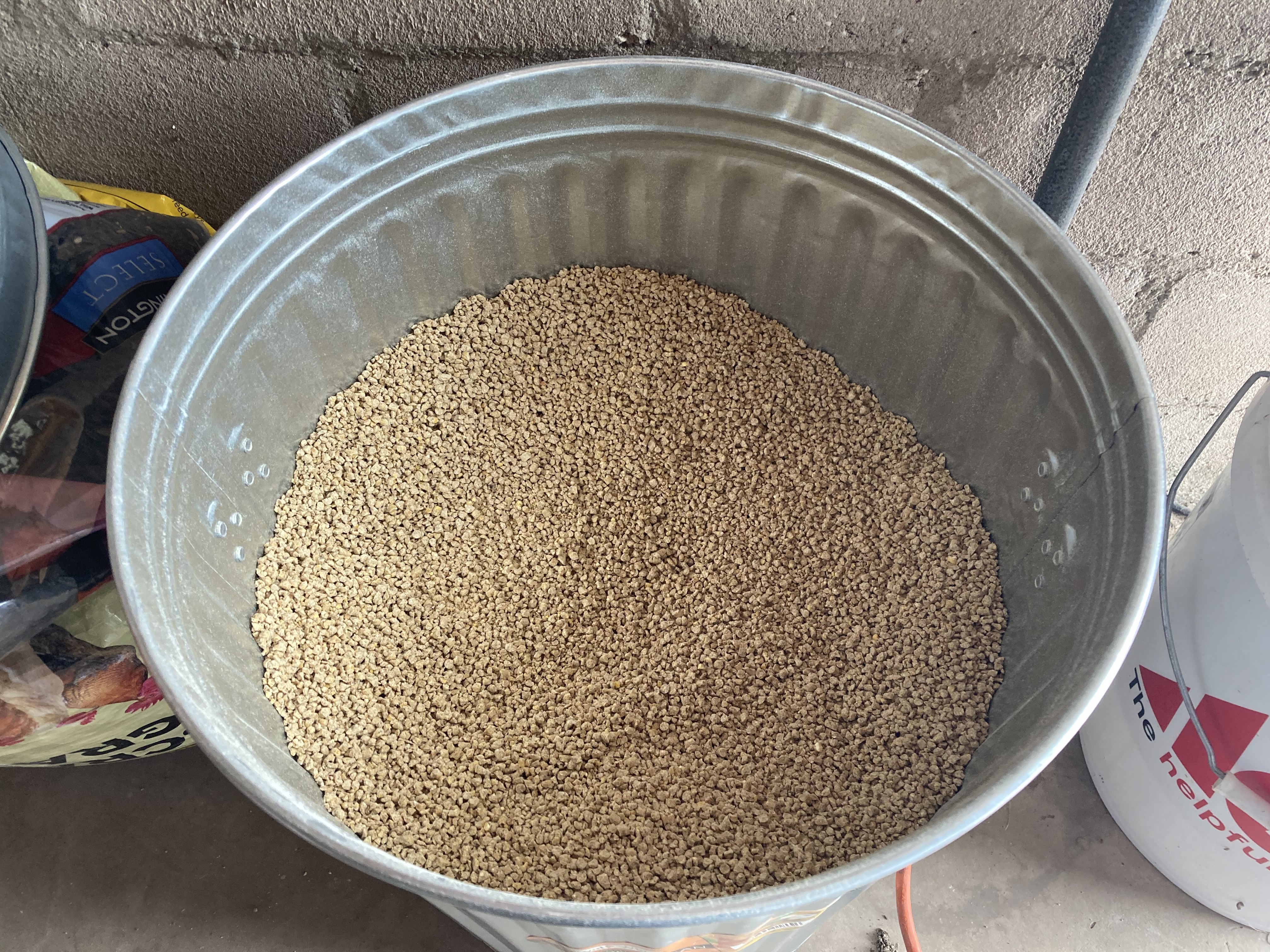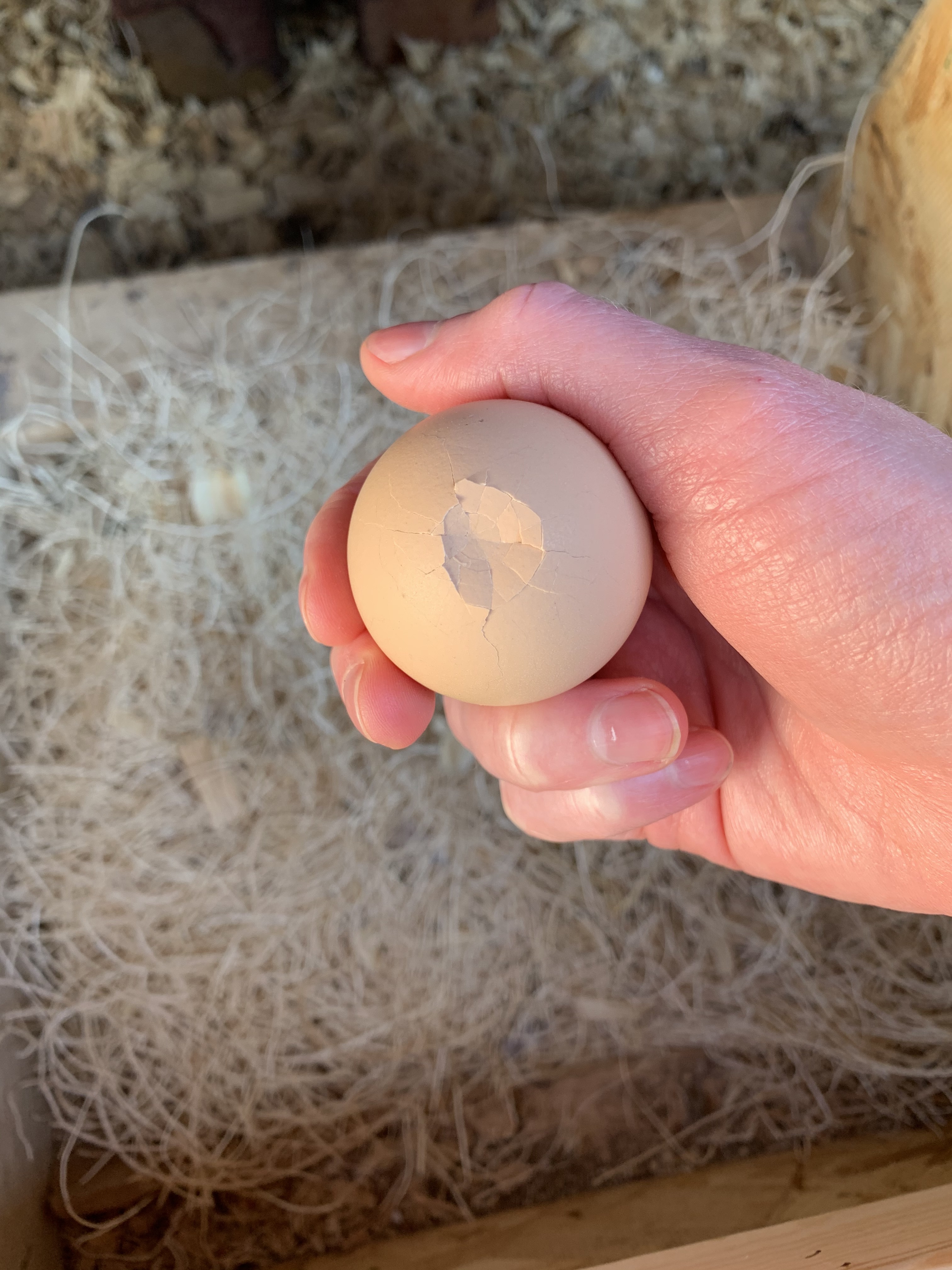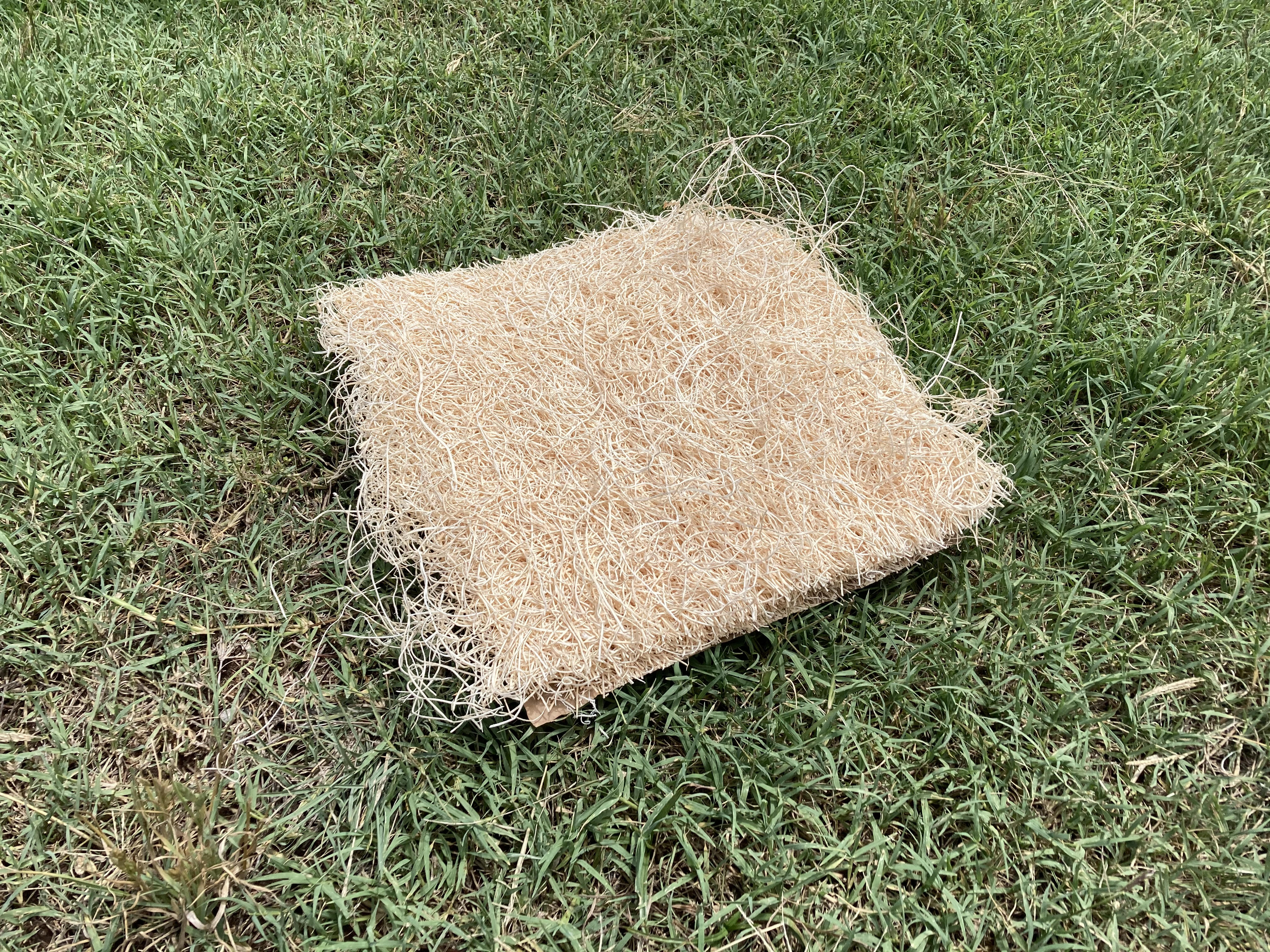A problem that many chicken keepers encounter with their flock is egg eating. When I first got chickens, I was nervous about egg eating because I thought it would be an impossible activity to stop once it started. However, I have found several ways to stop and virtually prevent my chickens from eating their eggs.
Egg eating is a form of cannibalism in chickens. There are several causes of egg eating, including a hen missing key nutrients in her diet, stress, boredom, too much light in nesting boxes, overcrowding in the coop, and laying soft or thin shelled eggs. Adjustments can be made to reduce this behavior.
Keep reading to get more information on each of these causes and to learn how to stop or prevent your chickens from eating their own eggs.
1. Provide Well-Balanced Diet
The number one reason why most chickens will eat their eggs is due to a nutritional deficiency.
Protein
Eggs are high in protein, typically containing about 12% protein. If a chicken is not getting sufficient protein from her diet, then she will be more inclined to eat eggs.
In general, laying hens require 16% of their diet to consist of protein. During the summer, chickens eat less feed than in the winter so their feed will need to contain more protein in the summer to make up for the reduction in feed consumption.
In addition, chickens that are going through their annual molt will require increased amounts of protein. Feathers are especially high in protein, consisting of 85% protein. If your chickens are eating eggs due to a protein deficiency they might also be picking feathers and eating them.
Vitamin D and Calcium
When chickens are not getting enough vitamin D or calcium in their diet, the shells of their eggs will be weaker. Soft or thin shelled eggs are easier to break.
Vitamin D is needed for the assimilation of calcium. Calcium is a major ingredient in egg shells and when there is a deficiency in calcium, egg shells become weak and thin. Calcium needs increase with a hen’s age and in warm weather.
Layer feed typically contains the necessary amount of calcium for laying hens; however, if you think your hens might not be getting enough, consider calcium supplements. Oyster shells are high in calcium (about 35% calcium content). Also, some people will grind up egg shells and feed them back to their chickens to supplement their calcium needs.
2. Feed Crumbles Instead of Pellets
Chickens instinctually peck as a way to satisfy hunger and this activity takes up the majority of the time that a chicken is awake. When hunger is satiated too quickly, chickens still have the desire to peck. Pecking, when it is not related to gathering food to eat, can be done to the exposed skin of other chickens or to eggs that are sitting in nesting boxes. When eggs are pecked they can easily be broken, causing the chickens to eat the yolk that spills out. After the chickens realize pecking eggs can lead to a tasty treat, a vicious cycle is started.
To prevent excess pecking of other chickens and eggs, feed your chickens crumbles, instead of pellets. Pellets have the same nutritional value per piece so chickens are able to quickly have their nutritional needs met and can then become bored. Since crumbles are small and it takes more bites of the crumbles to meet the nutritional needs of the chickens, they are more likely to take longer to eat and they will spend their time pecking their food, not eggs.

3. Gather Eggs More Frequently
A good way to stop egg eating before it ever starts it to gather eggs frequently, at least once a day.
I wrote this post listing 5 reasons why it’s important to collect eggs every day.
Chickens will lay eggs every 25 hours and are usually finished laying by about 3:00 PM. I have found it easiest to check the nesting boxes after work and again in the morning when I let them out. There are usually no eggs in the morning (unless I forgot to check the boxes the evening before or they laid very early that morning).
When eggs sit in the nest boxes too long, they are more susceptible to being broken, either by accident or on purpose, and then eaten. Collect eggs daily to avoid egg eating from becoming a daily habit with your chickens.

4. Use Nesting Pads in Nesting Boxes
Nesting boxes need to have a soft space for eggs to land after they have been laid, otherwise they might end up broken.
I previously used pine shavings in my nesting boxes. The chickens were continually kicking out the shavings and their eggs would land directly on the wooden flooring of the nesting boxes. I would end up with several broken eggs every week.
I could usually tell an egg had been broken by the loud squawking coming from the chicken coop (loud enough for me to hear inside the house). When I would go outside to check on the situation, the chickens would be fighting over who would get to eat the yolk from the broken egg.
After doing some research, I discovered nesting pads. These are made of shredded wood that is packed tightly together, preventing the chickens from scratching it apart or kicking it out of the nesting boxes.
By providing a structured, soft place for the eggs to land, I very rarely find broken eggs in the nesting boxes now.

5. Provide Sufficient Space in Coop
Overcrowding in the coop can lead to bad behaviors, including egg eating.
In general, chickens require the following minimum amount of space:
| Minimum Space | |
| Chicken coop | 3 sq ft (per chicken) |
| Nesting boxes | 1 ft x 1 ft x 1 ft (for every 4 chickens) |
| Roosting bars | 8 inches (per chicken) |
| Chicken run | 8 sq ft (per chicken) |
When chickens don’t have sufficient space, for sleeping, roosting, laying eggs, or eating, they can become stressed and fight with each other. Squabbles in the chicken coop or nesting boxes can lead to broken eggs, which is one step away from egg eating.
This post has more details on space requirements for chickens.
6. Give Chickens Activities
Boredom in chickens is another gateway to egg eating. After their immediate needs are met with food, water, and shelter, chickens will start to explore their surroundings with their beaks.
Chickens are smart, so when they get bored they want to investigate. Chickens explore their surroundings with their beaks and will peck on something to see what happens. When they discover that pecking on eggs leads to a delicious treat, then you have a problem.

Provide your chickens with enrichment activities to prevent boredom. You don’t have to get anything fancy, just add some things you probably already have in your backyard or garage to the chicken run.
Here are some examples of enrichment activities to decrease boredom:
- Add tree stumps or tree branches to the run for your chickens to walk on or stand
- Add an old wooden sawhorse to the run for chickens to roost on during the day (avoid anything made of PVC pipe since it’s too slippery for a chicken’s feet to grab hold)
- Place a a kiddie pool in the run for any chicken that wants to wade in the water, especially on hot days
- Provide the chickens with kitchen scraps for them to eat and occasionally give them something different for them to try
- Make sure you have a dust bath area for the chickens to roll in during the day
- Hang food from a string and let your chickens play tether ball (this works especially well with iceberg lettuce or cabbage)
Just keep in mind to add these activities gradually one at a time, otherwise your chickens can get stressed with several new items in their environment.
7. Use Wooden or Ceramic Eggs
If the enrichment activities are not enough to prevent boredom and egg eating, consider placing wooden or ceramic false eggs in the nesting boxes.
When the chickens peck on these false eggs, they might decide to not try pecking an egg shaped object again. However, as stated above, chickens are smart. You can only use false eggs for so long before the chickens catch on to your trick.
My chickens rolled the false eggs out of their nesting boxes and now they are scattered all throughout their run. However, a not so intelligent egg eater in the neighborhood found one of these wooden eggs and thought he would have a nice treat for later. We found one of the wooden eggs in the front yard in a flower bed that must have been carried there by a raccoon.

8. Ensure Environment is Stress Free
Stress and anxiety in chickens can lead to boredom and inappropriate behaviors, including pecking of eggs and egg eating.
There can several sources of stress in chickens, including:
- Bullying. A chicken who is being bullied continually can be stressed. She might hide out in the nesting boxes to escape the bully. While hiding in the nesting box, eggs can end up broken and egg eating will ensue.
- Predators. When predators try to enter the coop at night when the chickens are roosting, this can be a stressful event for chickens. Make sure your coop is predator proof and that your chickens are not being harassed by your dog at night.
- Overcrowding. Insufficient space in the coop was discussed earlier, but when chickens don’t have enough room to perform their normal chicken activities, they can become stressed. Not providing enough roosting space for your chickens can lead to lack of restful sleep for chickens lower in the pecking order. Fighting over nesting boxes can also lead to stress in chickens.
- Too much light. This applies to the nesting boxes and chicken coop. See the next section for more details.
9. Too Much Light
Too much light in the nesting boxes or in the coop at night can lead to stressed chickens who will engage in bad behavior, including egg eating.
In general, chickens require 6 to 8 hours of sleep every day. Sleep is essential to chickens as this is the time their brains will process new information and how they are able to build their body’s natural immunity. When the chicken coop is too bright at night, the chickens will not sleep since they are awake when there is enough light to see.
Most chicken coops have windows, which allow light into the coop at night. Make sure your neighbors don’t have a bright porch light that is shining in the coop all night long. Try to position your coop in your yard so that street lights don’t shine into the coop.
During the daytime, chickens can also be exposed to too much light. Nesting boxes need to be dimly lit to encourage chickens to lay eggs. If there is too much light in the nesting boxes, this can lead to other chickens to peck at a laying hen’s vent since it’s more visible.
If the nesting boxes in your coop are too bright, consider stapling a light piece of fabric to the opening of the nesting boxes. Tack the curtain open for a few days to let the chickens know they can still enter the nesting boxes. After they have determined the curtain is not a threat, you can remove the tack and totally close the curtain on the nesting box.
When you understand the causes behind why chickens eat their own eggs, you can be more prepared to stop this behavior. Even if your chickens don’t eat their eggs, the methods discussed above are great at preventing egg eating. Have patience with your chickens and you should be able to stop this bad behavior from becoming a widespread problem in your flock.


1 comment
[…] chickens have the taste of raw eggs, they will purposefully break eggs to eat them and it can be a difficult habit to break. You can try picking up the egg if the shell has not broken entirely and place it in the trash. […]
Comments are closed.